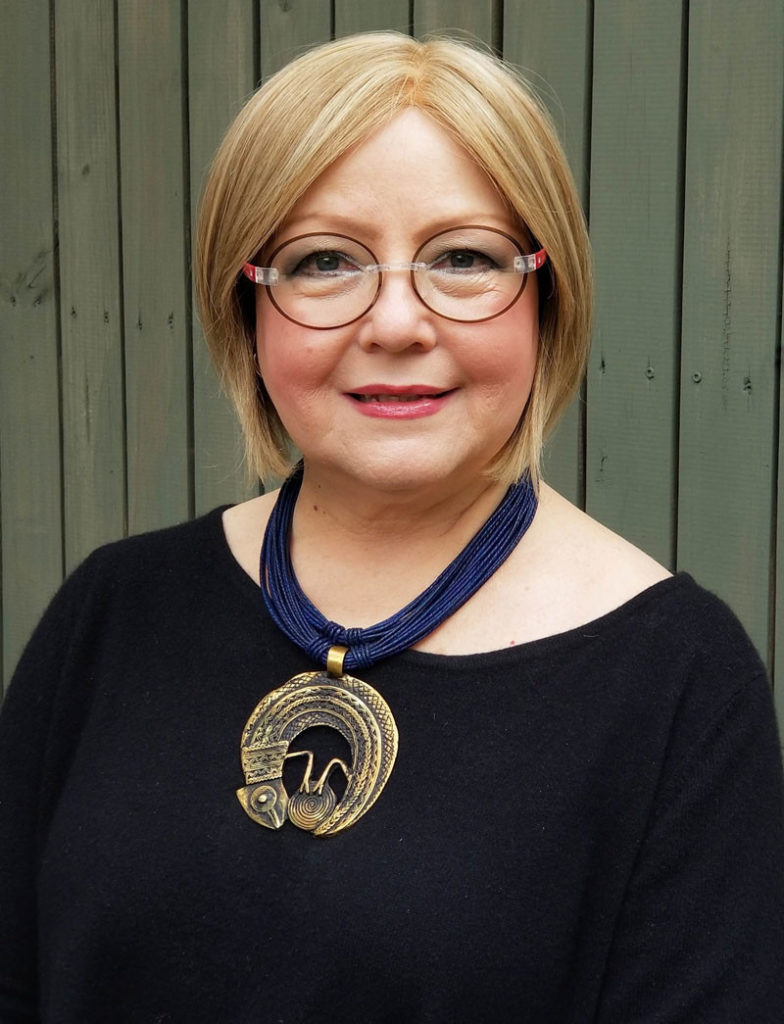
Criativos associados internacionais recently named Sandy Oleksy-Ojikutu, Ph.D., as a Senior Advisor. She is an authority on Sub-Saharan Africa with three decades of project design and implementation experience at the U.S. Agência para o Desenvolvimento Internacional.
Neste Q&UM, Oleksy-Ojikutu shares her passion for Africaand the value of dialogue paraparceiros internacionais de desenvolvimento.
What drives your passion for Africa?
Oleksy-Ojikutu: I went to live in Nigeria, África Ocidental, as a consequence of a personal choice. I lived within a Nigerianfamily, myhusband’sfamily, now myfamily.
Having leftmy post at Pace University in New York, I smoothly transitioned into joining the Faculty of Education at Nigeria’sUniversidade de Lagos (UNILAG) training teachers and lecturing on aspects of educational psychology. Lá, I gained tenure and earned a sabbatical year back in New York at Columbia University.
Toward the end of my time at UNILAG, my work with doctoral students focused on traditional counseling for adolescent and young adults analyzing the use of totems, ceremonies and age-grades to mark both the passage of time and the assumption of social responsibilities. My students taught me about the many challenges of growing up in Nigeria (as well as in Liberia, Líbia, and Iran!) and about the role of their cultures in aiding their progress. They taught me to really listen without judgment. To be an honest observer and an advocate, from the position of an outsider.
Essesinsights served me well as I expanded my work through USAID across thecontinent - to listen deeply toindivíduos to understand their values and vision without judgment. To valuedifferences, to seeindivíduos, comunidades enations in onepanoramicview. And then have adiálogo with host governments, communities and individuals.
When you live in any partdeAfrica and deal with dailyeuifeeussues as your own personal issues over an extended time (32 years in my case), you quietly internalize insightinto African values.EU simplywant Africa-as a continent, a collection of nations, and as an amalgamation of individuals— tosucceed and prosper, e I want tosupport that process. Oé desire grew over time and through experiences with individual Africans. It continues to grow.
Having worked in development for two decades, what do you think should be the focus of international partners in Africa?
Oleksy-Ojikutu: Basic needs exist acrossÁfrica, esimilarlyacross the world. It é a matter of degree. I know folks would like me to identify a hierarchsim of needs, but it just is nót that simple.Good health servicesensure and protecteuife. Education provides the skillsneeded for a good quality ofeuife. Food security sustainseuife. Rule ofeuaw and democratic elections maintain peace and security for individualé e oir respective nationé. Electrical powersuporta industrialdesenvolvimentoand promotes safety.Trade hubs facilitate personal and national economic growth, e assim por diante. Desdethese basic needs are simultaneous and not sequential in mostcountrieé, eunternationaldesenvolvimentoparceiros negotiate with African nations tobring theiruniquestrengths eskills to specificgeographicáreas paraassist in addressing basic needs. Sim, various political considerations are part of the decision making, but the goal isto eliminate dire precisa (e.g.,extreme poverty) and assist nationsemdeveloping solutions tchapéu encontrar eservice basic needs.The impacts are cumulative across a broad spectrum of developmentinterventions within a nation.
From your experience, what lessons have international development partners learned from their development work in Africa?
Oleksy-Ojikutu: We have learned a great deal about whatdoes nottrabalhar, including imposing external plans in development contexts, ouusing development fundingas an effortto secure sustainability. We have learned to do betterpor co-creating with host countries and direct beneficiaries as we designinternational development activities.We have adjusted our perspective on exactly what international development is.
Da sua perspectiva, what should they do to better translate lessons learned in their programming?
Oleksy-Ojikutu: I end where I began.International development partners preciso ouvir deeply para, and work directly with, their African counterparts and beneficiaries. The resulting dialogue would address the reconciliation of the needs/goals of the development partner and the beneficiaries.
What are the key areas Creative may have to consider doing development work in Africa?
Oleksy-Ojikutu: A equipe da Creative ouve atentamente, understanding the value of dialogue with host country counterparts and beneficiaries when designing interventionsin response to solicitations.This type of dialogue is not an easy task - moreover, Creative does this well! Oe resulting submissions have that ring-of-truth. Eles address donorprecisa erequirementsenquanto respecting erepresenting the beneficiaries’self-definedprecisa. Perhaps that is the unique ingredient needed for sustainability.
